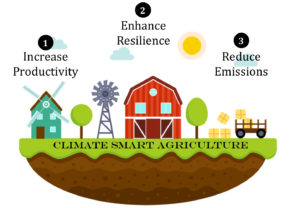 The U.S. Department of Agriculture received lots of input from biofuels groups this week on how to prove the impact of climate-smart farming practices on the greenhouse gas (GHG) net emissions estimates associated with the production of domestic agricultural commodities used as biofuel feedstocks, in response to a Federal Register request last month. The Request for Information is expected to inform the U.S. Treasury’s upcoming proposed rule for implementation of the Inflation Reduction Act’s clean fuel production credit, otherwise known as the “45Z credit.”
The U.S. Department of Agriculture received lots of input from biofuels groups this week on how to prove the impact of climate-smart farming practices on the greenhouse gas (GHG) net emissions estimates associated with the production of domestic agricultural commodities used as biofuel feedstocks, in response to a Federal Register request last month. The Request for Information is expected to inform the U.S. Treasury’s upcoming proposed rule for implementation of the Inflation Reduction Act’s clean fuel production credit, otherwise known as the “45Z credit.”
The Renewable Fuels Association urged the use of a “book-and-claim” accounting framework for tracking and transferring the greenhouse gas benefits of climate-smart agriculture (CSA) practices through the biofuels supply chain.
According to RFA’s comments, “Decoupling CSA attributes from the physical feedstock and allowing the renewable fuel producer to use book-and-claim accounting would encourage widespread adoption of CSA practices by growers and broad incorporation of CSA emissions improvements into biofuel lifecycle carbon intensity values. At the same time, book-and-claim accounting will allow the grain market to continue operating rationally and efficiently for all participants.”
The American Coalition for Ethanol (ACE) stressed the need to use the Department of Energy’s GREET model to quantify emissions and greenhouse gas (GHG) credits associated with the production of biofuel feedstocks.
ACE comments included progress that has been made to monetize CSA practices and ensure corn ethanol is part of the climate solution through its USDA-funded Regional Conservation Partnership Program (RCPP) projects, as well as soil organic carbon studies and a carbon intensity calculator tool.
Clean Fuels Alliance America submitted a highly detailed, technical response emphasizing “the need for immediate guidance and certainty before biodiesel, renewable diesel, and sustainable aviation fuel producers and their farmer partners transition to the credit in January.”
Clean Fuels recommends that USDA extend its analysis of climate smart agriculture practices to winter annual oilseeds and to all feedstocks that have approved pathways under the RFS. Clean Fuels also recommends that USDA consider other practices defined by USDA’s Natural Resources Conservation Service and create regional, practice-based carbon intensity credit tables using ERS’ Farm Resource Regions.
Finally, the Sustainable Aviation Fuel (SAF) Coalition, which represents all facets of the SAF value chain, urges USDA to consider four overarching principles during the rulemaking process:
• Ensure federal policies are science-based and data driven to unlock the full potential to develop and deploy SAF and build on Congressional directives provided by the 40B and 45Z tax credits;
• Ensure federal policies are technology and feedstock neutral with the aim of reducing carbon intensity in a realistic and verifiable way;
• Provide sufficient flexibility to accommodate new feedstocks and technologies;
• Ensure simple and clear administrative practices that are implementable and manageable.

